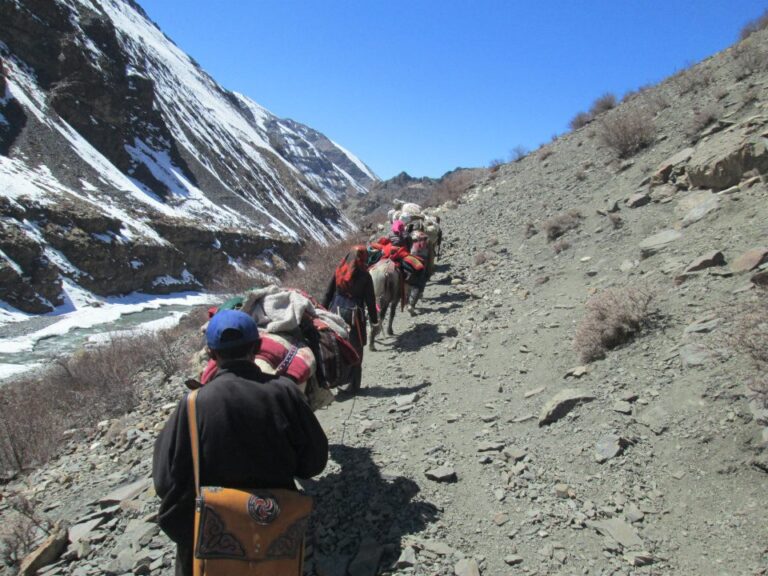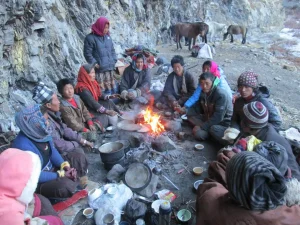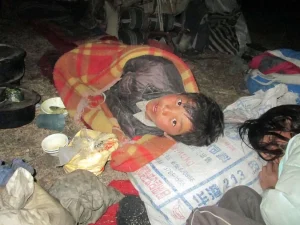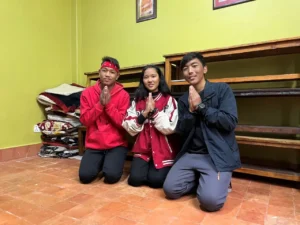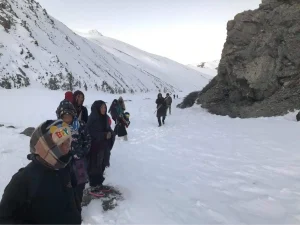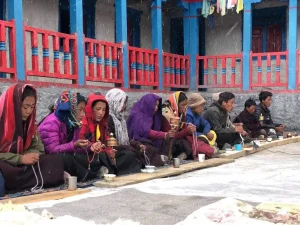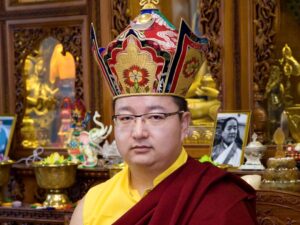Reaching the remote village of Komang in upper Dolpo from the capital Kathmandu is a very very long trip, it is like a real adventure. For ordinary people living in the cities and towns of the lowlands is quite difficult to imagine having to do a trip like this.
Dolpo District, Karnali Province
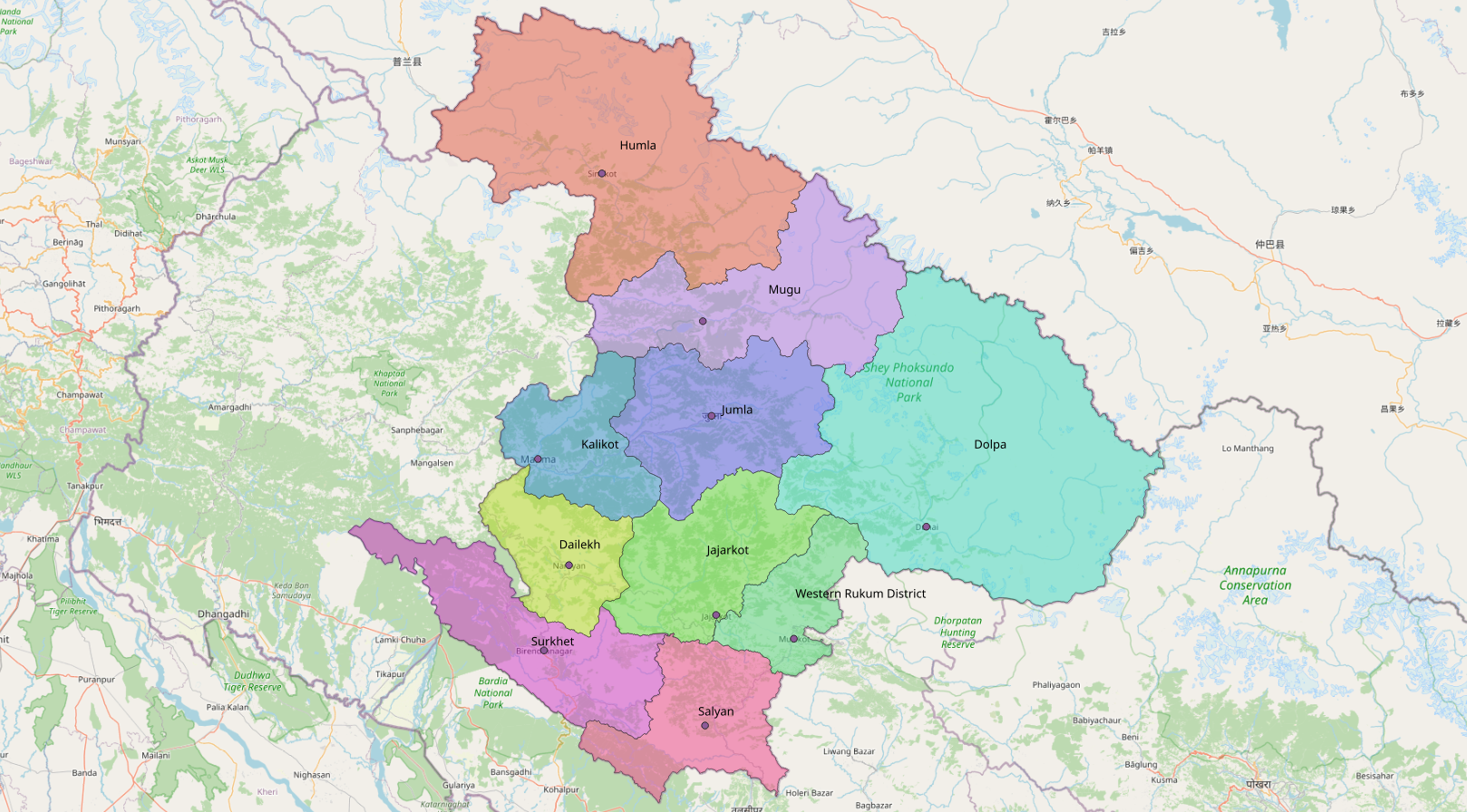
Dolpo is the biggest district in Nepal. It is in the western province of Karnali. There are lots of villages spread out around its wide area. It is divided into 2 parts, Upper Dolpo and Lower Dolpo.

Lower Dolpo people are mostly of Nepali culture. They speak Nepali, practice Hindu religion, and wear Nepali-style dresses. There are many villages, and most of the people know how to read and write, their place is much warmer and they even crop beans, rice, corn, chilly, etc.
In Upper Dolpo, there are many small villages. Around 80 percent of the people are Tibetan culture, they speak Tibetan language, wear Tibetan dress, and practice Tibetan Buddhism and Bon religions. The majority of old people are uneducated and don’t even know how to speak Nepali. Only recently, the younger generation is getting access to basic education. We are from Upper Dolpo.
Kathmandu to Dunai
Dunai, at an altitude of 2000m, is the gateway to Dolpo. With around 350 households, it is the biggest town and administrative headquarter of the Dolpo district.
There are two ways to reach Dunai; via Bus or airplane. The airplane is very costly so we always prefer to go via bus and use the airplane only if it is an emergency.
To reach Dunai by bus from Kathmandu usually takes four and a half days. We have to stop and change buses three times. There is also a bridge that big buses cannot cross, so only trucks and jeeps are available at that point.
Dunai to Komang
Komang is one of the coldest villages in upper Dolpo because it is located at a very high altitude (4,500 meters) compared to other villages. Most villages are close to each other and take one or two hours to reach by walk. However, the nearest village to Komang is two and a half hours walk and from other nearby villages takes around 6/7 hours to reach us.
There are some hotels near Dunai now, but most of them are too expensive. They are made especially for tourists coming from different places so local people traveling normally prefer sleeping and eating outside.
There is no car road to Komang, so after arriving at Dunai we have to walk. From Dunai takes a week to reach Komang if we walk slowly. But for the locals take 5 days, some people can do it in 4 days because they walk from 3 am to 9 pm without stopping. It is the same way back from Komang to Dunai.
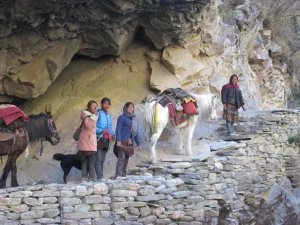
There isn’t any house or hotel to stay in and have shelter on the way, so we need to travel with food, utensils to cook, clothes, blankets to sleep on, etc. Sometimes sleeping outside is very cold (during snowing or windy times) and dangerous and scary because we hear many wild animals’ sounds, so we always make big firewood to protect us from the wild animals and coldness.
The happiness of returning home
Although the journey is very long when we finally reach Komang village all the people are so happy and excited, even small children come running to see us. The people then tell us, “wow! you’re so big now, so handsome, so beautiful, so grown up!” they talk so much to each other and there’s so much happiness on their faces that all the hardship is forgotten immediately.
The hard journey in the past
Even though this journey is still hard, it is much easier compared to what our forefathers had to go through. My grandfather told me that when they go to Kathmandu, they always tell their last wish to their family and leave because Kathmandu is very far away and during that time there were not even buses. They had to walk for 3 or 4 months to reach Kathmandu.
Because only a few people would travel to Kathmandu in the past, the way wasn’t well known and they always had to search for different ways. Most of the travelers were on pilgrimage because in Kathmandu there are many holy places. Like our ancestors, many pilgrims from far away countries would travel there to visit the holy sites and receive their blessing.
Thank you so much!
Nyima
